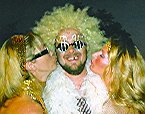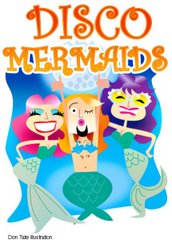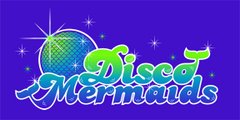If only it were this easy to begin a novel. My YA work-in-progress love story has been a blast to work on. I love the characters and actually have dialogue running through my head quite often. The setting is beautiful, the research has been stimulating, and the plot twists have been as exciting to write as if they were happening to me.
The lovely and talented Laini Taylor describes the process of writing a novel so articulately on her blog, Not For Robots. I would advise anyone out there who is writing a novel, is thinking of writing a novel, or even those who believe novel writing to be an easy job…those who picture us lounging around coffee houses all day, philosophizing about life, love, and loss, effortlessly cranking out masterful prose in between smoke breaks…to visit Laini’s site to get a real taste for how complicated novel writing is.
What rang so true with me is Laini’s idea of The Snick, which she describes as “the sound and feeling of a puzzle piece fitting into place.” So true! It’s the most satisfying part of writing, that elusive Snick. It can’t be forced. It has to slide easily and feel right. In my insomnia haze the other night I took her puzzle-metaphor further and compared writing to having an enormous, small-pieced puzzle spread out in front of you. Oh, but the thousands of pieces are scattered about the table and they're all white. And what you have to do is paint an idea or feeling or spot of dialogue onto one piece, then find the pieces that fit around it (mind you they’re all white), and paint those pieces. In the end, the entire puzzle has to create one large picture, with no gaps or unbelievable images, like a horse with wombat feet or something (that’s just wrong). The big picture has to make sense and everyone staring at it has to go, “Oh! I totally get it. That’s so clever.”
Which brings me to this: I’m on a serious roll with my feelings and images and Snicks and all the rest, but, I can’t seem to figure out how to begin the bloody thing. Agent Nathan Bransford had a wonderful “Surprisingly Essential First Page Contest” where he dissected what goes into an extraordinary first page of a novel, which I found very informative. However, creating a tone, a memorable entrance for the main character, suggestion of the main problem, appealing setting, and hooks that are intriguing, but don’t hit you over the head with over-the-top-ness is easier said than done.
Where to start? Where to start? Action? Dialogue? A question? Setting description? A thought in the MC’s head? It’s the strangest feeling to be so close to this novel, yet so completely unaware of where the real story begins. Once upon a time…? It was the best of times, it was the worst of times…? It was a dark and stormy night…? Help!
- Eve
Thursday, February 07, 2008
Subscribe to:
Post Comments (Atom)







11 comments:
Eve - I love that Robots blog Laini wrote! And I agree with your white puzzle - what a good illustration. Laini says to think about how you want your characters to be first introduced....so maybe you could think about your characters and where you want us to first see them, and that will lead you to your opener! maybe?!
I have a YA I've toyed with for years and I love the opening, but get stuck right there - I can't move it forward - yuck. (and sometimes it moves out of YA, right on into adult fiction!) Anywho....it def. feels like the white puzzle.
Well, good luck! Glad to hear your voice again after those scary medical research tests! Looks like you survived...Hope you got some good images for your character :-)
Katie
I forgot to say I checked out Nathan's contest a few days ago and I loved the one about the woman who wasn't attractive, but everyone couldn't help but stare at her...
And oddly, I liked the sci-fi one- I think 'cuz I was amazed at all that crazy stuff he was making up. and also the soup can man.
They were all really great weren't they? Which one did you like?
Hi Eve,
Beginnings are tough to figure out. But here's one way to think about it: The ending is the beginning in disguise. So if you know your ending, work backwards and construct a beginning that is your ending in disguise.
Does that help?
Oh! Thanks, Eve! I wrote those pieces for Not For Robots while avoiding writing a particular novel (which is at last complete in some semblance of a first draft!) As for first pages, I spend so much more time futzing with the opening of a book or story than with any other part of it. SOOO much more. It is so important. I remember meeting some guy whose new comic book series had just debuted, and the first issue was kind of dull, and he kept telling people, "Wait for the third issue. That's where it really gets going." AS IF! That's so not how it works. I don't recall, but I wouldn't be surprised if he never made it to the third issue!
Hope you mermaids are all doing well!
Hi Katie!
I liked the story about the "unattractive attractive" woman too. It was mesmerizing. I think I'll focus on the introduction to the characters thing. I always think character is most important. Thanks for the advice. Seriously, this really helps!
Brenda, I love that idea, the beginning is the end thing. But how? Wait! I think I just thought of an idea. Be right back!
Laini, it's been almost an entire year of writing and futzing with the opening that just won't work. I feel MUCH better knowing that you spend tons of time on the opening too. I am not alone in my disease.
Eve
Eve, I feel your pain! I've just re-written the first three chapters of my YA novel... AGAIN. My friends are starting to question my sanity ("Aren't there drugs for that?" "OCD much??") but I tell them that the first chapter or two of a novel should be like the overture in a one of those good old musicals, Oklahoma, say, or My Fair Lady, and just as the overture includes bits and snatches of every single song you'll hear in the whole play, the first two chapters should contain the most -- if not all -- of the characters, conflicts, and themes you'll encounter later in the book. So in a sense, they're the most challenging chapters of all! In another sense, though, it seems nearly impossible to write the first chapters before you know what those characters, themes, and conflicts are, so give yourself permission to do a GOOD ENOUGH job now, and come back later.
Good luck!!
Molly
I never worry about the beginning until way after the end.
There's that old saying: You only get one chance to make a first impression. So true and so tough. I like beginning sentences that generally sum up a big part of the story. Can't seem to write them though...
For some unknown reason, beginnings are easy for me. It's the rest of the novel I struggle with. So, this is just a stab in the dark, but my advice would be to start anywhere, but just to start.
Lots of people end up scratching the first X number of pages of their novel anyway ... so maybe you'll get partway through and hit a part where you say, "Aha! This is the perfect beginning for my story!"
Good luck, Eve!
I kinda like "Once upon a time" for a YA opener. I might just use that!
This is a great topic, Evie. And I agree with CynJay that it's best to write the beginning after you've written the end. But sometimes that's not practical when an agent or editor is asking for the first three chapters pronto! Aarrrggh!
You know I'm here to help. Love, Robin
You don't have to be good to start, you just have to start to be good!
The "beginning is the ending in disguise" thing is BRILLIANT. I just realized, however, that I got it totally backwards. I think maybe it could go either way because for cohesiveness, the beginning and the ending should be closely related, but not too obvious - you know, not like a Seinfeld episode where everything comes full circle, but more like you're peeling away layers to reveal the heart of the story. Anyways, good luck and call me if you want to bounce ideas off of me. Lamy
Post a Comment